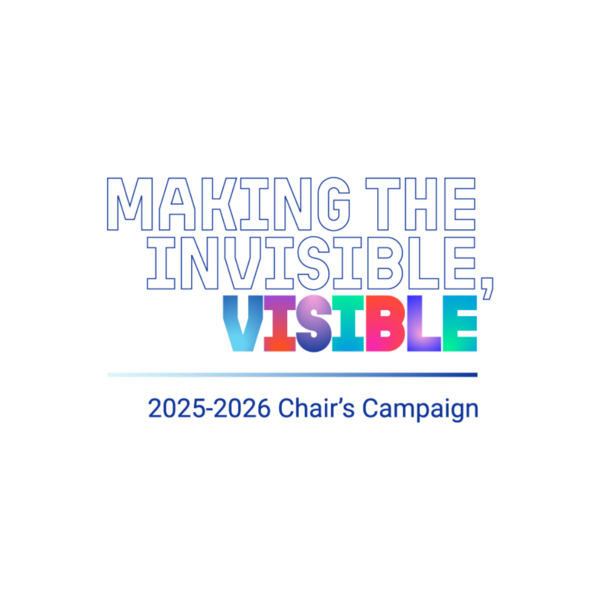
2025-2026 Chair's Campaign - Making the Invisible, Visible
I am Sarah Braunstein, Assistant Commissioner at the New York City Department of Health and Mental Hygiene, and NASTAD’s 2025-2026 Board Chair. I am elated to announce my Chair’s Campaign, Making the Invisible, Visible, which will focus on communicating the impacts of public health – and sustaining those impacts through the current federal administration, and beyond.
Public health often operates on the margins and in the background. It is a vast and varied system that supports and promotes the health and well-being of populations and communities, but it is often only on the periphery of the general public’s awareness.
We are at a time when it is critical for us to more effectively communicate what public health is, why it matters, and what’s at stake if it’s eroded, attacked, and under-resourced. My Chair’s Campaign will galvanize NASTAD and its membership around the following core components or actions: document, monitor, share, and connect. We will aim to effectively and efficiently communicate about our work, share its impacts, and name what we need to continue doing good work. Our goal will be to reach new and broader audiences in ways that resonate, and through channels that are accessible.
It is imperative that we position ourselves to protect all historical, recent, and future public health gains, and especially, prevent rollbacks in areas where we have managed to narrow inequities.
Document and Monitor
As its first core goal, the campaign will support members and their teams to document their impact and monitor and communicate changes in impact across the public health areas we address. It is vital to continue to use data to guide decision-making and help reach the communities that need to be reached in order to end HIV, eliminate viral hepatitis, and address intersecting epidemics.
It is important that we do our best to safeguard data and use it effectively. I am encouraging NASTAD and its membership to: 1) share experiences around data-related challenges and to share their creative solutions; 2) sustain and augment, where possible, the public health and associated data we collect locally to document public health impact, issues, and needs as they evolve and emerge; and 3) measure the impact of changes in language related to our public health work and data on the work itself.
Share and Connect
Partnerships allow us to amplify and extend our work, which is critical in public health where reach and diffusion are key to success. This second goal relates to developing new partnerships and coalitions and reaching new audiences, so that our work is deepened, and the value of public health is more widely known. It is imperative that we evaluate who we are messaging to, how we are messaging to them, and what a “win” might look like for them – and then tailor our communications accordingly. As part of the campaign, NASTAD and health departments will work collaboratively to develop new national-level partnerships and channels for communicating the impact and value of our work. NASTAD will also support members to develop their own new local partnerships, for example by providing training in coalition-building and by developing forums for sharing best practices and tools.
We are in a historical moment where it is crucial to protect and support public health efforts. NASTAD and its membership must continue to generate and implement evidence-based approaches to reach the people and communities most impacted by the HIV, hepatitis, and intersecting epidemics – and work with them to promote better health and well-being for all. Public health knows well that population health and well-being can only be achieved if all communities, including and especially the most vulnerable, are healthy and thriving. We have an opportunity right now to highlight the impacts of public health, raise public awareness of them – and to be clear about what’s at stake if they’re rolled back. NASTAD and its membership are uniquely positioned to help lead these efforts, and with NASTAD’s support this Chair’s Campaign will facilitate our doing so.